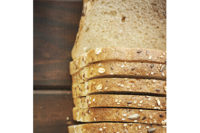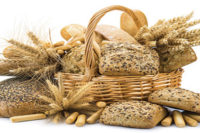The health benefits of vitamins and minerals

With daily schedules more hectic than ever and meals often becoming grab-and-go occasions, it can be challenging for people to get the vitamins and minerals they need. While dietary supplements are one way to increase nutrient intake, small changes in eating habits, such as including more nutrient-dense foods, can go a long way toward increasing our nutrient consumption.
Grains serve as an essential building block for getting the proper amount of daily nutrients. The Grain Foods Foundation (GFF) recently assessed national consumer consumption data sets (known as the National Health and Nutrition Examination Survey, or NHANES) to showcase how much grains and grain-based dishes contribute to the nutrient consumption of the average American. The findings were staggering, with grains providing nutrients such as calcium, folate, iron and potassium, as well as vitamins A, B and E, in significant amounts. In addition, grains provide approximately 40 percent of fiber in the diet—more than fruits and vegetables combined.
The 2015 Dietary Guidelines Advisory Committee released a report in February that found nine nutrients to be underconsumed by the general public. Four of these nutrients—calcium, vitamin D, fiber and potassium—were classified as a public health concern because their underconsumption has been linked to chronic health issues.
The Centers for Disease Control and Prevention (CDC) released its own nutrition report in 2012 that found that one in 10 people have at least one nutritional deficiency, often because nutrient deficiencies go unnoticed due to varying symptoms and individuals’ ability to adapt to symptoms.
Meanwhile, the International Food Information Council Foundation’s 2013 “Functional Foods Consumer Survey” found that, besides not getting enough nutrients, consumers often have a false sense of the amount of nutrients in their daily diets. There tends to be a discrepancy between what they actually ingest versus what they think they ingest. Fiber and potassium, in particular, are confusing to consumers, with more than 60 percent of Americans believing they receive enough of both. In reality, only 5 percent of people attain the recommended intake. Given these consumer misperceptions, fortifying snacks and baked goods can help deliver much needed vitamins and minerals in certain cases.
Vitamins and minerals are essential for a healthy body. Iron, for example, is crucial for growth and development as well as for helping red blood cells carry oxygen through the body, yet nearly 10 percent of women are lacking in iron intake, according to the CDC nutrition report. According to the same report, the most common deficiency is vitamin B6, which helps spark more than 100 different enzyme reactions in the body; more than 10 percent of Americans are lacking in this vital vitamin.
Whether by incorporating more nutrient-dense ingredients in meals, or adding more dietary snacks and baked goods that have added nutritional benefits through fortification with vitamins, minerals and essential nutrients, people today need all the help they can get in refocusing efforts on ensuring that we’re all getting the recommend amount of nutrients every day.
Looking for a reprint of this article?
From high-res PDFs to custom plaques, order your copy today!





